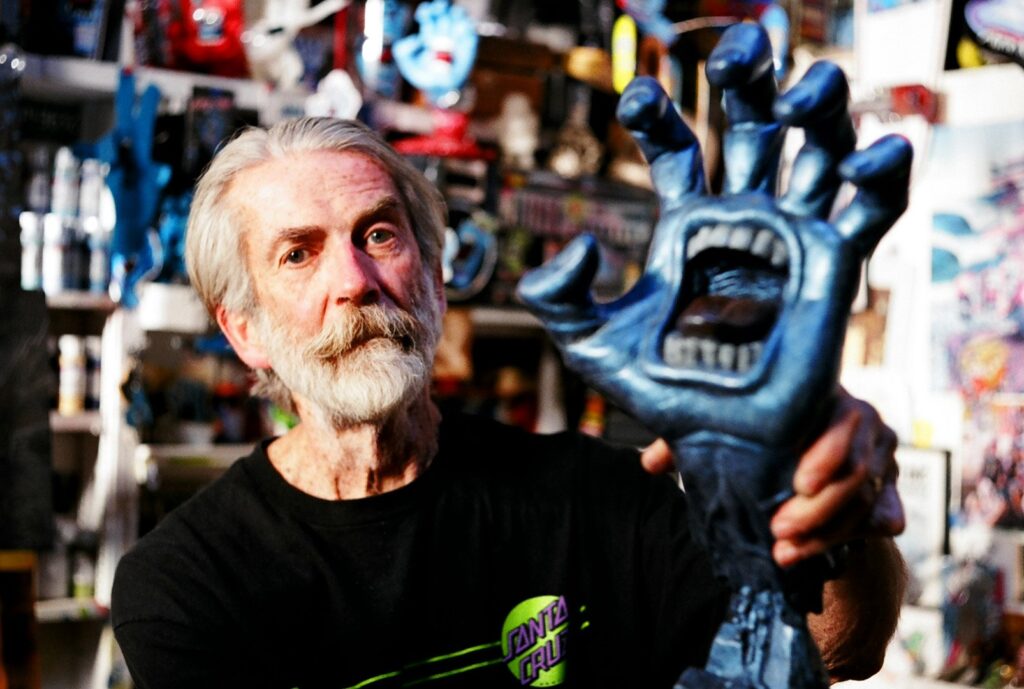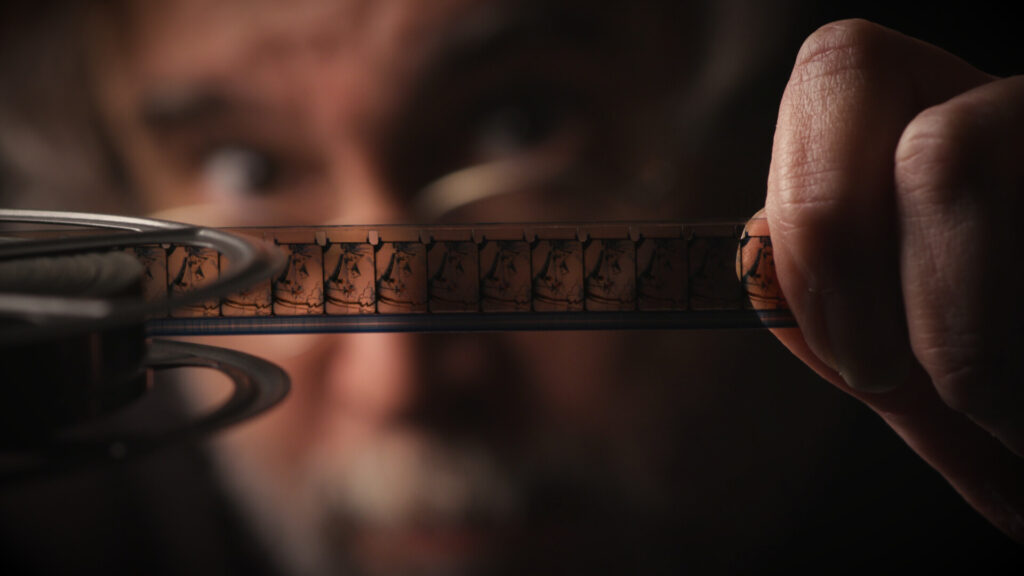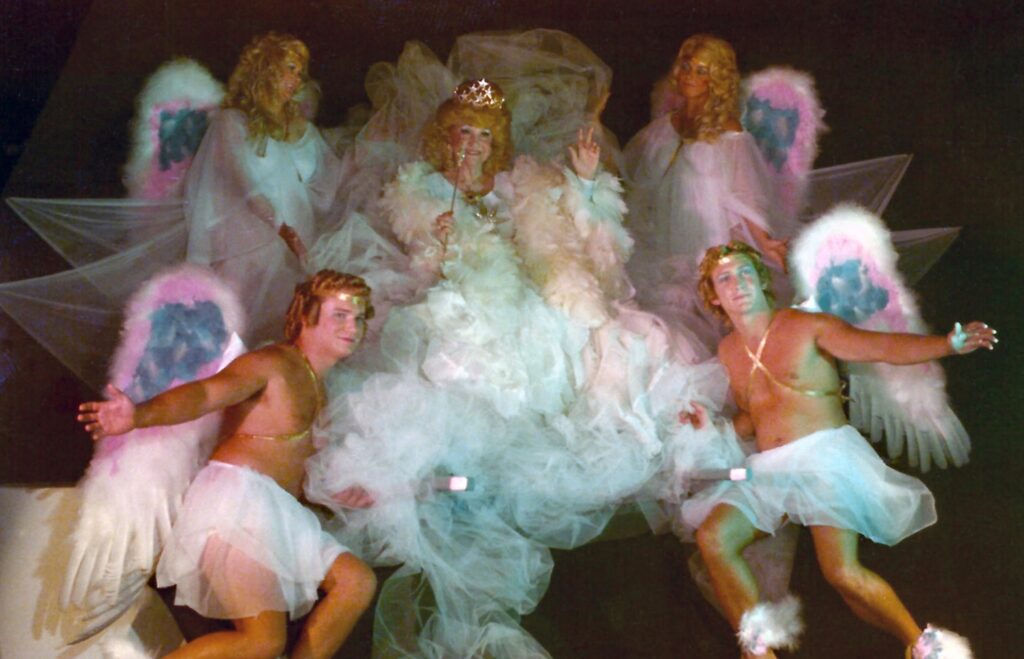Fruity cocktails, skateboard art, UFO cults and Gogol Bordello—yes, reality is frequently less than brutal when it’s programmed at SF Docfest (Thu/30-June 9 at the Roxie and streaming online), the annual city showcase for nonfiction cinema. Now in its 23rd year, the San Francisco Documentary Festival’s 2024 edition does feature serious inquiries into weighty subjects like the war in Gaza, the US opioid epidemic, international refugee waves, and more. But it also spotlights plenty of what’s still fun in life, from pickleball to cheesecake photography.
The opening feature this Thursday also kicks off a considerable roster of work by local filmmakers, as Alex Lamb and Max Well present The Donn of Tiki. It’s a look at the legacy of self-made (and self-mythologizing) “Don the Beachcomber” aka Don Beach nee Ernest Gantt, who pretty much singlehandedly created the whole vogue for elaborate rum drinks, pseudo-island decor, and other elements of “tropical fantasy.”
A natural host-with-the-most type, he parlayed his partying style into a popular Hollywood watering hole in the 1930s. The business greatly expanded, diversified, went up and down over coming decades—as did his marriages to a couple of very ambitious women. Unlike myriad imitators who followed in his wake, Beach was interested in preserving elements of authentic Polynesian culture, not just making a kitschy buck from its vulgarization. After the documentary, head over to the Last Rites bar for drinks, including tiki ones.

The same evening also brings one of several Docfest films about Bay Area artists. Michael Jacobs’ Who Is Michael Jang? profiles the titular shutterbug whose remarkable photos of life in SF and beyond from the 1960s onward have only belatedly gotten much recognition. Of related interest is John Makens’ Art and Life: The Story of Jim Phillips, whose subject has also caught the cultural waves of that time expanse via hugely influential surfing, skateboard, and rock-poster art. Another innovator who spent a significant stretch in SF is late avant-garde composer Pauline Oliveros, whose extraordinary career is charted in Daniel Weintraub’s Deep Listening.
Other features about creatives include the one about multinational punk/dub/Ukrainian/Romani band Gogol Bordello (Scream of My Blood), a queer outsider artist in Kentucky (Bob Morgan’s Just Going to Tell Some Stories), the tradition of Black masking culture in New Orleans (Guardians of the Flame), a fabled blues great (A Man Called Hurt: The Life and Music of Mississippi John Hurt), trailblazing pinup photographer Bunny Yeager (Naked Ambition), a Swedish rocker-slash-chicken farmer (Party Queens), and an artists’ colony in an abandoned Salton Sea desert town (Passing Through).
Art For Everybody is an expose/inquiry into Thomas Kinkade, the hugely popular, critically ridiculed “painter of light” whose hidden art (and life) turned out considerably less wholesome after he died in 2012. Film Is Dead. Long Live Film! celebrates the work of that medium’s preservationists, including SF’s own Rick Prelinger.

On the sportier side, The Death Tour follows aspiring pro wrestlers on a grueling indie fight circuit in Canada’s far north. Dreambreaker: A Pickleball Story reveals that behind every craze there are like to emerge bitterly dueling profiteers. Allihopa: The Dalkurd Story immortalizes the underdog climb of a soccer team composed of Kurdish refugees in a Swedish town, while Shirley pays tribute to pioneering drag-racing legend Muldowney.
Other features bring unique perspectives to such general topics as education (The First Class), childbirth (Born for This), immigration status (If I Could Stay), shrinking healthcare in rural areas (The Only Doctor), the housing shortage (Someone Lives Here), the multigenerational impact of opioid abuse (Inheritance), interracial adoption (The Last Daughter), and laws criminalizing African-American communities (Since I Been Down). Two more, Sexual Healing and My Own Normal, focus on people with cerebral palsy insisting on the right to live full lives.
Specific cultures are explored in Without Arrows, which follows a Lakhota family over a thirteen-year span; Black Rio! Black Power!, recalling Brazil’s racial empowerment movement of the 1970s; and Happy Campers, whose longtime “shabby Shangri-La” getaway for working-class vacationers on the Virginia shore is now imperiled by upscaling developers. Another way of life faces possible tumultuous changes in Small Town Universe, about a West Virginia hamlet that has greatly benefitted from the presence of “the most sensitive radio telescope in the world”—though the observatory which houses it may soon lose funding.
On a more overtly political tip, there are some sobering missives. Narrow Path to Happiness finds a gay Roma couple battling an increasingly homophobic climate in Hungary, one of many nations that have become fascism-adjacent in recent years. Where Olive Trees Weep makes a grimly indicting case for Israel’s treatment of Palestinians as an “apartheid state” and “colonial project” that represents the world’s “longest standing ethnic cleansing in the 20th and 21st centuries.”
Closer to home, official closing night selection “political video diary” 23 Mile on June 6 examines the upheavals of 2020—COVID shutdown, BLM protests, far-right militia activity, a contentious Presidential election—within the microcosm of swing state Michigan. Its recent-history flashback plays like a queasy preview of national discord yet to come in 2024.

Offering compensatory, balming chicken soup (or maybe tom kha gai) for the soul the prior night is Jodi Wille’s Welcome Space Brothers, about the still-active Southern California “academy of science” and spirituality known as Unarius. In its heyday 40 to 50 years ago, an ever-expanding mythology encompassing UFOs, “33 friendly planets,” and no end of fanciful pageantry got enshrined in a series of amazing amateur films that won a cult following via public access TV broadcasts.
No one could fail to be struck by their campy spectacle, or by the presence of “Archangel Uriel” i.e. Unarius co-founder Ruth E. Norman. An octogenarian more beglittered than Good Witch Glinda, she believed her past lives included ones as Mona Lisa, Socrates, Isis, King Arthur, Cleopatra, et al. She acted as a sort of “fairy godmother to people in pain,” fan Ann Magnuson says now, and indeed Unarius’ ranks included many “alienated” individuals who found healing there.
This affectionate history of the organization also digs into the dirt of the personality conflicts that eventually rose between them. But it primarily finds a disarming, whimsical purity of intention in the one rare quasi-religious “cult” among many that did not seem to exploit its followers for sex, money, or power-tripping purposes.
SF Docfest runs Thu/30-June 9 at the Roxie Theater, with most programs also available for streaming online. Many filmmakers and subjects will attend the in-person screenings. Full program, schedule, and ticket info here.






